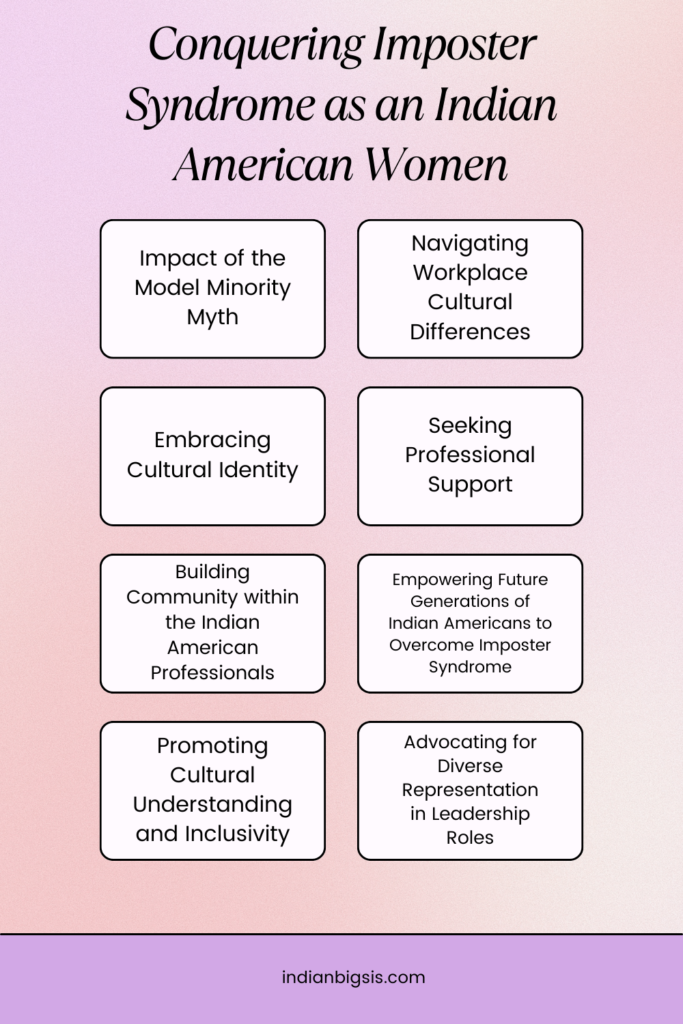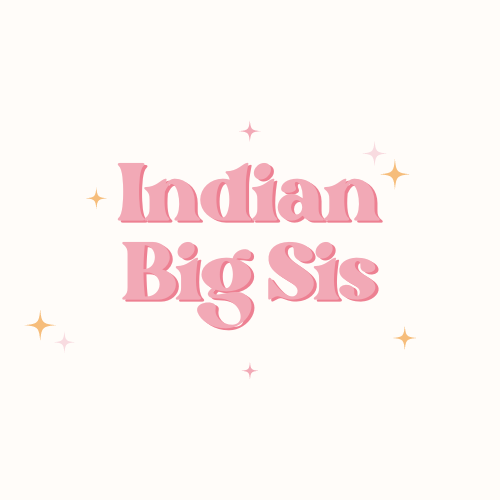
Indian American women may face cultural expectations around gender roles that dictate their professional ambitions and achievements. These cultural expectations can create a sense of inadequacy or self-doubt, leading to imposter syndrome. Imposter syndrome, or the feeling of self-doubt and inadequacy despite evidence of success and competence, is a common experience for many individuals, particularly those from underrepresented groups. For Indian Americans in the workplace, this phenomenon can be exacerbated by cultural and social factors, leading to increased anxiety and a sense of not belonging. In this comprehensive guide, we will explore strategies specifically tailored to the Indian American experience for overcoming imposter syndrome and building confidence, while also embracing cultural identity and navigating cultural differences in the workplace.
1. Recognizing Cultural Factors Contributing to Imposter Syndrome in the Indian American Community
Imposter syndrome can be particularly challenging for Indian Americans due to cultural factors such as the model minority myth, familial expectations, and cultural differences in the workplace. Recognizing these factors and their impact on mental health is the first step toward developing effective strategies for overcoming imposter syndrome.
2. Understanding the Impact of the Model Minority Myth on Imposter Syndrome
The model minority myth portrays Asian Americans, including Indian Americans, as a homogenous and high-achieving group. This stereotype can create pressure to conform to certain expectations and contribute to feelings of inadequacy. Understanding the negative effects of this myth is crucial for developing resilience and advocating for more nuanced and diverse representations of the Indian American experience.
3. Navigating Workplace Cultural Differences as an Indian American Professional
Navigating cultural differences in the workplace can be challenging for Indian Americans. Strategies for managing these differences include seeking mentors and sponsors within the Indian American community, educating coworkers about cultural traditions and values, and advocating for inclusive workplace policies that celebrate cultural diversity.
4. Embracing Cultural Identity as an Indian American in the Workplace
Embracing cultural identity is essential for building confidence and combating imposter syndrome. Strategies for connecting with cultural communities, exploring cultural traditions, and developing a positive cultural identity include joining Indian American professional organizations, participating in cultural events and festivals, and seeking out mentors and role models within the Indian American community.
5. Seeking Professional Support for Imposter Syndrome as an Indian American
Seeking professional support, such as therapy or coaching, can be helpful for managing imposter syndrome and building confidence. Finding a mental health professional who understands the cultural context of the Indian American experience can be beneficial for developing effective coping strategies.
6. Networking and Building Community within the Indian American Professional Community
Networking and building community are essential for connecting with other Indian Americans and navigating cultural challenges in the workplace. Strategies for networking and community-building include joining Indian American professional organizations, participating in cultural events and festivals, and seeking out mentors and role models within the Indian American community.
7. Empowering Future Generations of Indian Americans to Overcome Imposter Syndrome
Empowering future generations of Indian Americans to overcome imposter syndrome requires promoting cultural understanding and inclusivity, mentoring and sponsoring young professionals, and advocating for diverse representation in leadership roles. By creating a supportive environment that celebrates cultural diversity and individuality, we can help future generations of Indian Americans thrive professionally and overcome imposter syndrome.
8. Promoting Cultural Understanding and Inclusivity in the Workplace
Promoting cultural understanding and inclusivity in the workplace is essential for creating a supportive environment for Indian Americans. Strategies for promoting cultural inclusivity include providing cultural competency training for employees, celebrating cultural holidays and events, and creating employee resource groups for cultural minorities.
9. Mentoring and Sponsoring Young Indian American Professionals
Mentoring and sponsoring young Indian American professionals is crucial for supporting their career growth and helping them overcome imposter syndrome. By providing guidance, support, and opportunities for professional development, mentors and sponsors can play a vital role in empowering the next generation of Indian American leaders.
10. Advocating for Diverse Representation in Leadership Roles
Advocating for diverse representation in leadership roles is essential for creating a more inclusive and equitable workplace. By promoting diversity in leadership, we can create role models for young Indian Americans and help overcome the imposter syndrome that can result from a lack of representation. Strategies for advocating for diverse leadership include implementing diverse hiring practices, providing leadership training and development programs for underrepresented groups, and promoting diverse leadership through succession planning and board representation.
